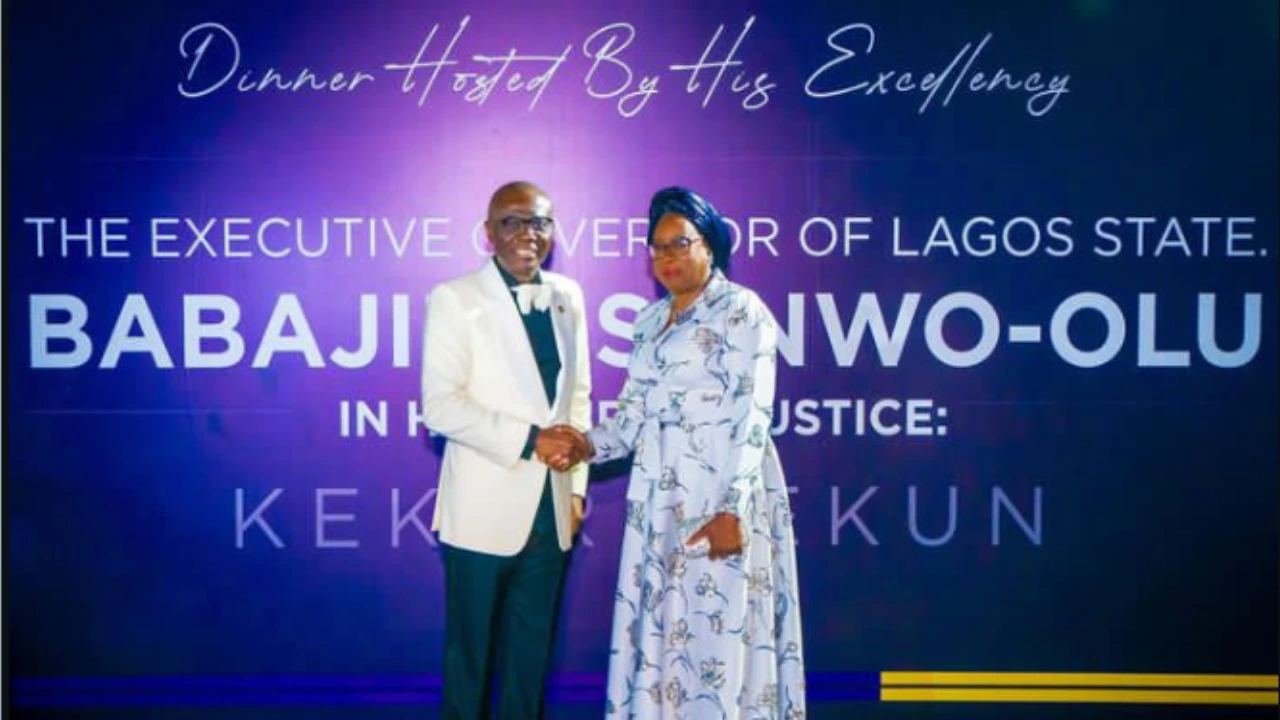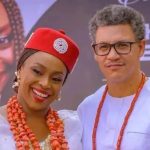
Sanwo-Olu Hosts Justice Kekere-Ekun for Dinner Despite NBA President’s Directive

The governor of Lagos State, Babajide Sanwo-Olu, hosted a special dinner on Saturday, honouring the newly appointed Chief Justice of Nigeria, CJN, Justice Kudirat Kekere-Ekun.
Sanwo-Olu, who, as a governor, possesses the executive powers of Lagos State, disclosed this on his official Instagram account, indicating State (Marina) House honour for a member of the judiciary.
Former CJN Olukayode Ariwoola, Kekere-Ekun’s predecessor, known and widely criticised for nepotism, was also present at the dinner to witness what Sanwo-Olu described as celebrating the second woman to hold the position of CJN after Justice Aloma Mariam Mukhtar.
Her exemplary leadership serves as a guiding light for women and young girls across Nigeria, demonstrating that excellence transcends gender, Sanwo-Olu noted.
Related News: The Tainted Trio At The Helm Of Nigeria’s Affairs
Canadian Mining Company B2Gold Pays Mali $30 Million To Settle Mining Tax Dispute
Contrary to Sanwo-Olu’s contentious remark on the new CJN, it will be recalled that Kekere-Ekun had been barred from stepping on U.S. soil for judicial corruption.
She was denied a U.S. visa application for being among a panel of justices which pronounced Hope Uzodinma, the All Progressives Congress candidate, the winner of the 2019 Imo State gubernatorial election despite his fourth-place finish in the vote count.
In an X post on Sunday, Chidi Odinkalu, former Chairman of Nigeria’s National Human Rights Commission, NHRC, criticised Sanw0-Olu’s special dinner honouring Kekere-Ekun, questioning the relationship between the executive and judiciary branches.
I was really prepared to give Madam [Justice Kekere-Ekun] CJN a chance, but this here….? I’ll be plain: This truly sucks!! Odinkalu said.
Nigerians, who believed such an event should not be held, also criticised Odinkalu similarly.
While there is no specific law in the Nigeria Constitution that prohibits a sitting governor with State executive powers from hosting a member of the judiciary, there are also ethical considerations and principles that govern such interactions – one of which – includes judicial independence.
Also, conflict of interest and bias, as well as breach of judicial officers’ code of conduct, are the arguments many Nigerians have pointed to following the interactions.
This comes despite calls from Afam Osigwe, president of the Nigerian Bar Association, NBA, to end the fraternisation between judicial officers and politically exposed persons in the country.
About The Author
Mayowa Durosinmi
author
M. Durosinmi is a West Africa Weekly investigative reporter covering Politics, Human Rights, Health, and Security in West Africa and the Sahel Region
Mayowa Durosinmi
M. Durosinmi is a West Africa Weekly investigative reporter covering Politics, Human Rights, Health, and Security in West Africa and the Sahel Region
Related Articles
MultiChoice Pumps GH¢200 Million Into Ghana’s Creative Industry
MultiChoice Ghana has invested more than GH¢200 million into the country’s creative...
ByWest Africa WeeklyMarch 5, 2026FIFA Confirms DR Congo Playoff Spot, Ending Nigeria’s World Cup Dream
Nigeria’s hopes of qualifying for the 2026 FIFA World Cup have come...
ByWest Africa WeeklyMarch 5, 2026Ghanaians to Travel to St Kitts and Nevis Without Visa
Ghanaian citizens will soon be able to travel to the Caribbean nation...
ByWest Africa WeeklyMarch 5, 2026Ghana Records Sharp Drop in Inflation, Lowest Since 2021
Ghana’s inflation rate dropped to 3.3 percent in February 2026, marking the...
ByWest Africa WeeklyMarch 5, 2026











Leave a comment